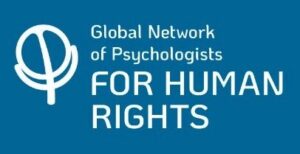

Editor’s Note
The GNPHR Bulletin focuses each month on a specific topic chosen in accordance with relevant UN events or UN commemorative days.
The June theme coincides with World Refugee Day, each year celebrated on June 20. This year, the focus will be on the right to seek safety. Every person on this planet has a right to seek safety – whoever they are, wherever they come from and whenever they are forced to flee.
The UN page gives more information and activities: https://www.unhcr.org/world-refugee-day.html
GNPHR June Blog Column for World Refugee Day: When racism meets humanitarian action: on Europe’s humanitarian response to Ukraine crisis
by Samrad Ghane, who is a former refugee, and works as a clinical psychologist, researcher and the director of the clinical psychology residency program at Parnassia Psychiatric Institute in the Netherlands.
Table of Contents
Special Section: World Refugee Day
Stories by Jane Corazon and Leticia Biira Birungi
CONTENT AREAS: ARTICLES AND NEWS
- General
- Academic Freedom / Higher Education
- Children/Youth
- Climate Justice
- Crimes Against Humanity
- Decolonization
- Exclusion: Racism, Xenophobia, Inclusion, Exclusion
- LGBTQ+, Gender
- Migration, Refugees, Displacement, Statelessness
- Violence and War
- Women’s Rights
INTERNATIONAL HUMAN RIGHTS NEWS
PUBLICATIONS
UPCOMING EVENTS
Bulletin End Notes
GNPHR NEWS
Webinar Series – Human Rights and Psychology
Next Webinar: July 11 2022 – Psychology and Human Rights Through the Ages
Prof. Saths Cooper. Discussion about the history of human rights. . 10:00 EDT and 16:00 CET. Register here
View all webinars in series here https://humanrightspsychology.org/webinarseries
Nominate for the *NEW* Human Rights Award
The International Council of Psychologists inaugurated a new Human Rights Award to recognize significant contributions by individual psychologists or organizations. Deadline 31 August, 2022. URL for the AWARD: https://icpweb.org/awards/human-rights-award/
How can you participate in Global Network Activities?
https://humanrightspsychology.org/get-involved/
- Student/young person representation on the GNPHR steering group
- Share Your Experiences and Examples of human rights protection or violation
- Share your expertise and opinion
- Send articles/news/events
SPECIAL SECTION: World Refugees Day
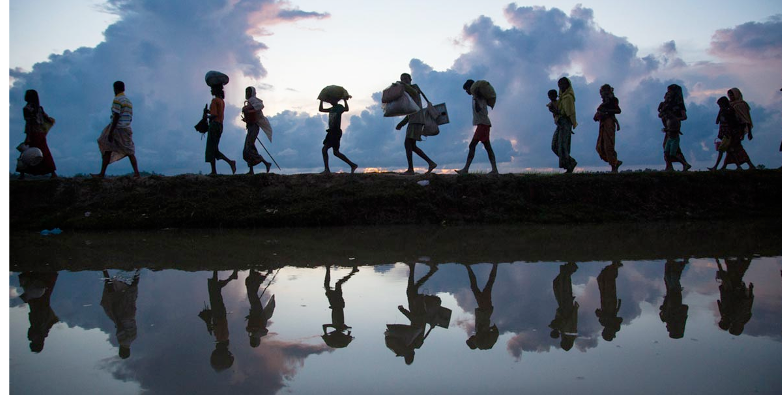
What is World Refugee Day?
[from the website https://www.unhcr.org/world-refugee-day.html ].
World Refugee Day is an international day designated by the United Nations to honour refugees around the globe. It falls each year on June 20 and celebrates the strength and courage of people who have been forced to flee their home country to escape conflict or persecution. World Refugee Day is an occasion to build empathy and understanding for their plight and to recognize their resilience in rebuilding their lives.
Whoever they are, people forced to flee should be treated with dignity. Anyone can seek protection, regardless of who they are or what they believe. It is non-negotiable: seeking safety is a human right.
Wherever they come from, people forced to flee should be welcomed. Refugees come from all over the globe. To get out of harm’s way, they might take a plane, a boat, or travel on foot. What remains universal is the right to seek safety.
Whenever people are forced to flee, they have a right to be protected. Whatever the threat – war, violence, persecution – everyone deserves protection. Everyone has a right to be safe.
What does seeking safety mean?
- Right to seek asylum
- Safe access
- No pushbacks
- No discrimination
- Humane treatment
 Read the June Blog
Read the June Blog
When Racism Meets Humanitarian Action
By Samrad Ghane
The war in Ukraine – Fundamental rights implications within the EU
https://fra.europa.eu/sites/default/files/fra_uploads/fra-2022-ukraine-bulletin-1_en.pdf
EU countries are welcoming and supporting unprecedented numbers of people fleeing the war in Ukraine. It has serious implications for many fundamental rights within the EU and requires Member States to find sustainable solutions, as the first Ukraine bulletin from the EU Fundamental Rights Agency (FRA) shows.
FRA’s first Bulletin on ‘The war in Ukraine – Fundamental rights implications within the EU’ looks at the challenges EU countries need to address to ensure people’s fundamental rights are upheld:
- Temporary protection – the quick activation of the EU Temporary Protection Directive helps Ukrainians settle and integrate in the EU. They have the right to work and to access services, without having to go through full asylum procedures. About 2.3 million people registered for this. EU countries now face an important task to make these rights a reality.
- Trafficking and sexual violence – with so much support from drivers taking people from the border, unvetted volunteers, and private job and housing offers, the risk of trafficking and sexual exploitation is high. This is particularly the case for women and children, who make up 90 % of those fleeing Ukraine, according to UNHCR. Even though many countries have taken steps to prevent trafficking, more needs to be done to prevent it from happening. By the end of April, none of the EU countries covered by this bulletin had a central register of drivers or those offering private accommodation to people fleeing Ukraine. Further steps should include training and awareness raising among border guards, volunteers and humanitarian aid workers to recognise human trafficking and to work towards its prevention.
- Discrimination – there are serious concerns of discrimination against non-Ukrainian nationals, LGBTI people or Roma trying to flee the war, as reported by civil society and international organisations. Some countries do not offer the same level of protection to non-Ukrainians fleeing the war. They face difficulties crossing the borders and finding support. Roma also face challenges finding accommodation, as very few people are willing to rent to them.
- Unaccompanied children – the exact number of children who arrived without a carer or separated from their family is unknown. Under EU law, unaccompanied children must be appointed a legal guardian as soon as possible. This ensures children are protected and can also help prevent illegal adoptions. Attempts to speed up the process of adopting Ukrainian children, reported in some EU countries, should be swiftly investigated.
- Education – EU countries try to address the educational needs of children fleeing Ukraine, through different initiatives. But numerous barriers remain related to a lack of coordination, information, language and limited places available from which also locals suffer.
- Integration – grassroots and voluntary efforts offer wide-ranging support to millions of people escaping the war. As they join schools and start work, public perceptions may change. Local people might feel an impact on their rights and benefits. To make integration sustainable, it requires a long-term and government-supported approach that addresses everyone’s needs.
Read Stories – Colleagues speak about Refugee Mental Health and Human Rights
Two stories from colleagues in Africa
Two clinical psychologists, Jane Corazon and Leticia Biira Birungi, bring stories about violations of human rights in the context of seeking asylum and refuge. What these colleagues describe is how the violation of refugees and asylum seeker’s fundamental rights further adds to their psychological distress, consequently compounding traumatic symptoms. We can read about great initiatives that strive to bring mental health and psychosocial support to the refugee settlements where access to such services is lacking. In order to be more efficient and to reduce discrimination of persons with mental health disorders, these initiatives are focused on inclusion of the entire community. These stories stress how important it is for psychologists to understand the broader context of their clients’ situation and to educate clients about their rights.
“People with mental health conditions deserve just as much support and compassion as those suffering from physical illness.”
In my work as a clinical psychologist, I have been part of initiatives to bring mental health and psychosocial support to the communities in refugee settlements where access to such services is usually scarce. The team with whom I work has modified the treatment of clinical mental health disorders to include the entire community. This is because in most African communities, mental health is still fairly new and unheard-of; ignorance still plays a large role in precipitating and perpetuating illness. However slow, it is getting better.
Read More Here
As a clinical psychologist, I am privileged to work with Urban Refugees and asylum seekers in Nairobi, Kenya. We offer psychosocial support to clients from different countries presenting psychological effects from war, torture and death they may have witnessed. Majority of the clients are from Burundi, Somalia, Democratic Republic of Congo, Ethiopia, Eritrea and South Sudan. According to the statistics from the Kenyan Government and UNHCR-The UN Refugee Agency, as of 31st December 2021, the total number of refugees and Asylum seekers in Kenya was 540,068. The Urban refugees account for sixteen percent (16%) of this population. Read More Here
Additional Articles Connected to Special Section
Youth groups give young Rohingya refugees skills and a sense of purpose.
https://www.unhcr.org/news/stories/2022/5/628f25ce4/youth-groups-give-young-rohingya-refugees-skills-sense-purpose.html Linda Muriuki and Regina De La Portilla in Cox’s Bazar, Bangladesh | 26 May 2022
Adolescent clubs and environmental youth groups are helping to bridge the education gap for Rohingya refugees living in camps in Bangladesh.
Seeking safety at the United States-Mexico border. https://www.unhcr.org/news/stories/2022/5/628f85164/seeking-safety-united-states-mexico-border.html UNHCR Staff , 30 May 2022, Español
Narrated by UNHCR Goodwill Ambassador Ben Stiller and UNHCR high profile supporter Mindy Kaling, an animated series looks at the rights of people forced to flee and the responsibility we all have to protect them.
Every day, people arrive at the United States border with Mexico seeking safety in the U.S. Some are running from dangerous gangs in Central America. Others have watched their neighbors, friends or family members die during armed conflict or war and fear they may be next. Some are fleeing persecution because of their sexual orientation or gender identity, religion, ethnicity or political views.
UNHCR’s animated series on asylum at the U.S.-Mexico border, narrated by UNHCR Goodwill Ambassador Ben Stiller and UNHCR high profile supporter Mindy Kaling, offers an easy to follow explanation of what it means to seek asylum, or protection. The series of four videos explains the right to seek asylum, offers a look at who seeks asylum and the people who provide them humanitarian support.
Subscribe to The Refugee Brief, the UN Refugee Agency’s weekly news digest. Stay on top of displacement news around the world with The Refugee Brief. https://www.unhcr.org/refugeebrief/
Our newsletter recaps the week’s top refugee stories and highlights some of the stories to watch in the week ahead, all in a highly readable, concise format.
”Please don’t buy me a plane ticket to present at your event, I don’t have a passport” – the birth of ENS’s community speaker policy. Lynn Al Khatib, Stateless Changemaker, ENS, 13 June 2022. https://www.statelessness.eu/updates/blog/please-dont-buy-me-plane-ticket-present-your-event-i-dont-have-passport-birth-enss?mc_cid=5185558397&mc_eid=072f82858f
This blog launches ENS’s community speaker policy; a policy co-designed with people affected by statelessness that provides good practice guidance on how to engage and work with community speakers. This policy and its templates can be used by stateless changemakers, governments and NGOs to make speaking engagements for community speakers a more supportive and empowering experience. In this piece, Lynn Al Khatib draws on a lifetime of personal and professional experience living with and presenting on the issue of statelessness to explain why this policy is so needed.
The Refugee Studies Centre (RSC) was founded in 1982 by Barbara Harrell-Bond, and is part of the Oxford Department of International Development. Our mission is to build knowledge and understanding of forced migration in order to help improve the lives of some of the world’s most vulnerable people. https://www.rsc.ox.ac.uk/. International Online School in Forced Migration. Monday, 4 July 2022 to Friday, 8 July 2022.
CONTENT AREAS AND NEWS
General
New Report Recommends Treat Implicit Bias as a Public Health Problem
Newswise – Association for Psychological Science, 20 May 2022. Implicit biases are automatic and unconscious tendencies that can perpetuate social injustices based on race, gender, and age. Many well-intentioned and widely used programs and interventions to reduce implicit bias, however, have been woefully ineffective at bringing about meaningful change.
In the latest issue of Psychological Science in the Public Interest, a team of researchers reports on how decades of anti-bias techniques and programs—aimed primarily at individuals and groups—have failed to reduce implicit bias and discrimination. A more promising approach, they propose, is to treat implicit bias as a public-health problem and to support programs that intervene more broadly at the institutional level.
“Anti-bias training methods have not effectively dealt with discrimination due to implicit and systemic biases,” said Tony Greenwald, a researcher at the University of Washington and lead author on the paper. “We find, however, that public-health-inspired solutions—programs that prevent biases from causing discrimination and tools to uncover and fix disparities—are much more likely to succeed, but they require buy-in from business and political leaders.”
Science must overcome its racist legacy: Nature’s guest editors speak
Melissa Nobles, Chad Womack, Ambroise Wonkam & Elizabeth Wathuti. The international journal of science, Nature, 9 June 2022.
We are leading Nature on a journey to help decolonize research and forge a path towards restorative justice and reconciliation. https://media.nature.com/original/magazine-assets/d41586-022-01527-z/d41586-022-01527-z.pdf
Science is a human endeavour that is fuelled by curiosity and a drive to better understand and shape our natural and material world. Science is also a shared experience, subject both to the best of what creativity and imagination have to offer and to humankind’s worst excesses. For centuries, European governments supported the enslavement of African populations and the subjugation of Indigenous people around the world. During that period, a scientific enterprise emerged that reinforced racist beliefs and cultures. Apartheid, colonization, forced labour, imperialism and slavery have left an indelible mark on science.
Although valiant and painful freedom struggles eventually led to decolonization, the impacts of those original racist beliefs continue to reverberate and have been reified in the institutional policies and attitudes that govern the ‘who’ and ‘how’ of individuals’ participation in the modern, global scientific enterprise. In our opinion, racist beliefs have contributed to a lack of diversity, equity and inclusion, and the marginalization of Indigenous and African diasporic communities in science on a national and global scale.
What is the “Great Replacement” right-wing conspiracy theory? The Economist, 16 May 2022
And why has it spread to mainstream politics? At its core, it asserts that white people are threatened.
IN “THE GREAT GATSBY”, Tom Buchanan, a boorish plutocrat, recounts what he learned from a book called “The Rise of the Coloured Empires”, by a man called “Goddard”. “It’s a fine book, and everybody ought to read it,” says Buchanan. “The idea is if we don’t look out the white race will be—will be utterly submerged.” F. Scott Fitzgerald was parodying, just about, a book called “The Rising Tide of Colour against White World-Supremacy” by Lothrop Stoddard. Stoddard was admired by Adolf Hitler. He argued that the “Nordic race” that he held responsible for all world progress was being outbred by darker-skinned, supposedly inferior types. In Fitzgerald’s novel, Buchanan’s support for Goddard is a sign that he is a stupid, dislikeable man.
Almost a century later, the shooting of 13 people, 11 of them black, at a supermarket in Buffalo, a city in upstate New York on May 14th, points to the continuing popularity of such racist ideas. The suspect, Payton Gendron, an 18-year-old who streamed his massacre on Twitch, a gaming website, had apparently published a 180-page document online explaining his motivations. Much of it was copied directly from a similar “manifesto” written by the man who went on a killing spree in Christchurch, New Zealand, in 2019. In essence, it argued that there is an international Jewish conspiracy to engineer the migration of non-white people to historically white countries in an attempt to “replace” whites with a more pliant, racially inferior population. This is known as the “Great Replacement” theory. https://www.economist.com/the-economist-explains/2022/05/16/what-is-the-great-replacement-right-wing-conspiracy-theory?utm_content=article-link-3&etear=nl_today_3&utm_campaign=a.the-economist-today&utm_medium=email.internal-newsletter.np&utm_source=salesforce-marketing-cloud&utm_term=5/16/2022&utm_id=1169292
Academic Freedom / Higher Education
Polish president stifles genocide researcher’s professorship bid. Ben Upton, May 24, 2022, Times Higher Education WUR.
Michał Bilewicz, head of the Center for Research on Prejudice at the University of Warsaw, has been waiting more than three years for Andrzej Duda to sign off his appointment as full professor.
The impasse has been seen as part of what critics say is a concerted effort by Poland’s right-wing government – which Mr Duda heads – to pressurize scholars who implicate Poles in the Holocaust and to aggressively enforce a narrative of exclusive victimhood.
“This postponing is a way to harass those academics who are doing research on the topics that our nationalist government doesn’t want to be studied,” Dr Bilewicz told Times Higher Education.
Dr Bilewicz, who currently holds the rank of associate professor, has published several papers on antisemitism and the aftermath of the Holocaust in Poland. His application for a professorship cited work exploring why countries deny their dark histories.
He said that this was a “very dangerous topic in a nationalist state”.
In Poland the path to full professorship requires habilitation, a postdoctoral qualification awarded by a central committee based on feedback from external reviewers. Dr Bilewicz sailed through until the final stage: a signature from the head of state.
Children/Youth
Russia to fast-track adoptions of Ukrainian children ‘forcibly deported’ after their parents were killed by Putin’s troops, authorities say. Bethany Dawson, Insider, 9 April 2022.
- Ukrainian officials say more than 121,000 children have been forcibly deported to Russia.
- Russia is changing legislation to allow for the fast-tracked adoption of these children, they allege.
- The Ukrainian Presidential Advisor on Children’s Rights accused Russia of violating UN laws.
- The Ukrainian Ombudswoman for Human Rights has said that the Russian government is crafting legislation to allow Russians to adopt Ukrainian children forcibly taken to Russia by military forces.
- She has also stated that, so far, over 121,000 children have been “deported” by the Russian government.
- In a statement on Facebook, Lyudmila Denisova said that the Russian Federation is changing legislation to allow “the accelerated procedure of adoption of children from Donbas.”
- She added that Ukrainian officials have no information on the children that are allegedly being processed for adoption by Russians.
Climate Justice
Militarism or peace and justice: Psychology at the crossroads of climate change. Serdar M. Değirmencioğlu, PINS, 2022, 63, 6 – 28, June 2020 https://www.pins.org.za/pins/pins63/PINS-Issue-63_Article_Degirmencioglu.pdf
Psychological research on climate change has shifted its focus toward the way climate change influences psychological well-being. An exclusive focus on the consequences of climate change is misleading because there is an urgent need to address causes of climate change. Psychologists must start considering the impact of militarism on climate change and abandon their reluctance to address military pollution, environmental destruction, and the environmental impact of nuclear weapons. Psychologists can find a more meaningful role in any society focusing on peace, justice and human rights, rather than militarism and national security. In the context of the environment, psychologists must choose to defend the planet, which is home to all. In the context of climate change, psychologists can chart a meaningful course of action only if they focus on environmental justice.
PINS (Psychology in society) is a peer-reviewed journal that was formed in September 1983 as vehicle for a critical and anti-apartheid stance in psychology. PINS continues to foster a socio-historical and critical theory perspective by focusing on the theory and practice of psychology in the southern African context. Tweets as @DirenenSerdaR – mostly in Turkish & English
Eco-anxiety Is a Threat to Global Mental Health—and to the Planet. If we are so overwhelmed that we turn away from climate change, it will defeat us. Lindsay Myers, Public Seminar, June 2022. https://publicseminar.org/2022/06/eco-anxiety-is-a-threat-to-global-mental-health-and-to-the-planet/?utm_source=rss&utm_medium=rss&%23038;utm_campaign=eco-anxiety-is-a-threat-to-global-mental-health-and-to-the-planet#038;utm_medium=rss&%23038;utm_campaign=eco-anxiety-is-a-threat-to-global-mental-health-and-to-the-planet
I see the climate clock on Union Square almost every day: on my way to the grocery store, when I stop by the farmer’s market, and even on my morning quest for caffeine before I am ready to face the day much less impending climate catastrophe. In bright orange neon numbers, it counts down the years, days, hours, minutes, and seconds until the effects of climate change are irreversible. Instead of indicting the box stores, banks, and fast-food chains that crowd this very commercialized section of Lower Manhattan, I cannot help but think it affects all of us more than it causes any corporate or systematic change. This clock does not feel like an invitation to act or speak – it is just as likely to cause people to shut down.
When we talk about climate change and health, we usually focus on the physical health of living things, both vegetable and animal. But policymakers are going to have to come to terms with the effects of climate change on human mental health too. Among my millennial and Gen Z friends, some obsess over how each small action we take affects the planet. Some of us shame friends and family for not attending to these things, while others urge compassion because, in their view, there is no ethical consumption under capitalism, and we should all be kinder to ourselves. Yet others seem content to simply ignore the problem.
Crimes against humanity
MK-Ultra: The CIA’s secret pursuit of ‘mind control’. Video by Adrian Hartrick & Dominika Ożyńska, BBC, History, 29 March 2022.
In the early days of the Cold War, the CIA ordered the creation of a secret programme intended to find ways of mind control. They funded an army of psychiatric institutions across the United States and Canada to perform experiments on patients using psychedelic drugs, sensory deprivation, electroshock treatment and more. The programme was known by its now infamous code name: MK-Ultra. https://www.bbc.com/reel/video/p0by2ybb/mk-ultra-the-cia-s-secret-pursuit-of-mind-control-?ocid=ww.social.link.email
The CIA’s Secret Quest For Mind Control: Torture, LSD And A ‘Poisoner In Chief’. Terry Gross, Heard on Fresh Air, September 9, 2019. https://text.npr.org/758989641
During the early period of the Cold War, the CIA became convinced that communists had discovered a drug or technique that would allow them to control human minds. In response, the CIA began its own secret program, called MK-ULTRA, to search for a mind control drug that could be weaponized against enemies.
MK-ULTRA, which operated from the 1950s until the early ’60s, was created and run by a chemist named Sidney Gottlieb. Journalist Stephen Kinzer, who spent several years investigating the program, calls the operation the “most sustained search in history for techniques of mind control.”
Some of Gottlieb’s experiments were covertly funded at universities and research centers, Kinzer says, while others were conducted in American prisons and in detention centers in Japan, Germany and the Philippines. Many of his unwitting subjects endured psychological torture ranging from electroshock to high doses of LSD, according to Kinzer’s research.
“Gottlieb wanted to create a way to seize control of people’s minds, and he realized it was a two-part process,” Kinzer says. “First, you had to blast away the existing mind. Second, you had to find a way to insert a new mind into that resulting void. We didn’t get too far on number two, but he did a lot of work on number one.”
Rehearsal for Genocide, Magda Teter, NY Times Book Review, 9 June 2022.
- Legacy of Blood: Jews, Pogroms, and Ritual Murder in the Lands of the Soviets, Elissa Bemporad, Oxford University Press.
- International Jewish Humanitarianism in the Age of the Great War, Jaclyn Granick, Cambridge University Press.
- In the Midst of Civilized Europe: The Pogroms of 1918–1921 and the Onset of the Holocaust, Jeffrey Veidlinger, Metropolitan.
The war in Ukraine has simultaneously forced to the surface and upended the memory of a history that had fallen into oblivion. The past, we see once more, can be reinvented and reinterpreted. In 2014 Slava Ukraini became the slogan of an independent, westward-looking Ukraine, when the Euromaidan protests resulted in the ousting of its president, Viktor Yanukovych, and his flight to Russia. In 2018 it became the official greeting of the Ukrainian army. Since February 24 of this year it has become a worldwide cry of solidarity.
Yet its roots lie in post–World War I violence. Ukrainian nationalists hollered “Glory to Ukraine” not only in their fight for independence but also during horrific massacres of Jews in 1918–1921 that killed over 100,000 people, possibly even as many as 200,000, sometimes wiping out entire Jewish populations in towns and villages. The shout was then taken up in the 1930s and 1940s by far-right Ukrainian nationalists, who were implicated in anti-Jewish and anti-Polish attacks and in collaborating with the occupying Nazi forces. Although banned by the Soviet authorities, it survived among émigrés in the West. After being reappropriated as a patriotic salute among Ukrainians in their struggle against Russia, today it serves President Volodymyr Zelensky to rally international support for war-torn Ukraine.
Three recent books excavate this century-old story and shine light on its lasting importance. Elissa Bemporad’s Legacy of Blood: Jews, Pogroms, and Ritual Murder in the Lands of the Soviets looks at the memory and consequences of this violence in the Soviet Union. Jaclyn Granick’s International Jewish Humanitarianism in the Age of the Great War examines the rise of nongovernmental humanitarian mobilization in response to World War I and its savage aftermath—a mobilization aided by the ascendancy of the United States and its Jewish community. Jeffrey Veidlinger’s In The Midst of Civilized Europe: The Pogroms of 1918–1921 and the Onset of the Holocaust offers an account of the brutality in the years that followed World War I in Eastern Europe and argues that it created conditions for the mass murder of Jews a generation later during World War II.
What all three books show is that the Great War did not end in November 1918. In the east, in the territories that are now in Poland, Ukraine, and Belarus, bloodshed not only continued but intensified, as multiple factions sought to establish new countries on the ruins of empires that “in a stunning development,” Veidlinger says, “had crumbled in just a few days.” Ukrainian nationalist groups fought for an independent Ukraine while clashing over their visions of what it would be, having to face both Bolshevik and White Russian forces from the east and, from the west, Polish troops seeking to reestablish an independent Poland. As each group embraced different ideas of loyalty, belonging, and citizenship, Jews were caught in between—trapped as permanent outsiders, unable to fit into the newly fashioned nation-states.
Just days after the armistice was signed on November 11, 1918, Polish soldiers arrived in Lviv, a multiethnic city with significant Polish and Jewish populations, and a Ukrainian minority amounting to just under 20 percent, to claim it for Poland. The city, whose name changed according to the political powers that controlled it—Lwów, Lemberg, Lvov, and Lviv—was, as Veidlinger puts it, “the linchpin of the multinational state” envisioned by Marshal Józef Piłsudski. He dreamed about reinstating Poland to “the historic borders of the Polish–Lithuanian Commonwealth,” a vast multicultural polity that had been wiped off the maps of Europe in 1795, after its final dismemberment by the Habsburg Empire, Prussia, and Russia. But on November 1, a few weeks before the Polish troops’ arrival, one of the Ukrainian national groups had already announced in Lviv “the establishment of the West Ukrainian People’s Republic,” raising the blue-and-yellow flag over the city hall, to the ire of the Polish population. https://www.nybooks.com/articles/2022/06/09/rehearsal-for-genocide-pogroms-magda-teter/?utm_medium=email&utm_campaign=NYR%2005-22-22%20Teter%20Ford%20Nijhuis%20Pinsky%20Feldman&utm_content=NYR%2005-22-22%20Teter%20Ford%20Nijhuis%20Pinsky%20Feldman+CID_183c8e1c1627e612c8ea44392dcdc338&utm_source=Newsletter&utm_term=Rehearsal%20for%20Genocide
Decolonization / Indigenization
The Times reveals how Haiti became the poorest country in the Americas. German Lopez, NY Times, May 22, 2022.
Haiti is one of the poorest countries in the world, and a new Times investigative series explores why. One stunning detail: France demanded reparations from Haitians it once enslaved. That debt hamstrung Haiti’s economy for decades — and kept it from building even basic social services, like sewage and electricity.
The usual explanation for Haiti’s problems is corruption. But the series suggests something else is also to blame.
Yeah. This other answer lodged into the side of my mouth as I read more history books on Haiti. One by Laurent DuBois mentioned this “independence debt,” but he didn’t go into much detail. That was the first time that I read about it and was like, “What is this?”
The Haiti series
The Times this weekend published several articles on Haiti’s history, including:
- The reparations to enslavers are the root of Haiti’s misery, as the first piece in the series explains.
- Haiti tried to set up a national bank. In reality, a French bank controlled it.
- Wall Street called for an invasion of Haiti — and the U.S. obliged.
- Haiti’s president asked for reparations. Then the U.S. and France removed him from office.
- Here are six takeaways, a timeline
Decoloniality as a social issue for psychological study. Readsura Decolonial Editorial Collective (The Readsura Decolonial Issue Editorial Collective includes (in random order): Kopano Ratele, Stellenbosch University, South Africa; Geetha Reddy, Nottingham Trent University, UK; Glenn Adams, University of Kansas, USA; and Shahnaaz Suffla, South African Medical Research Council, University of South Africa. Journal Soc Issues 2022;78:7–26, 29 March 2022. https://spssi.onlinelibrary.wiley.com/doi/abs/10.1111/josi.12502
This article provides a theoretical introduction to a two instalment special issue on decolonial approaches to the psychological study of social issues. Decolonial approaches propose that colonial violence is not confined to the distant past (i.e., colonialism); instead, it persists as coloniality: racialized ways of thinking and being associated with Eurocentric global domination. Rather than characterizing modernity and its individualist psychological manifestations as progress, decolonial theorists use modernity/ coloniality to illuminate the colonial violence inherent in the modern order and inseparable from modern individualist development. One implication of a decolonial framework is that colonial violence extends beyond physical space to psychological space, such that complete liberation requires forms of psychological decolonization. Accordingly, articles in this first installment consider decoloniality as a social issue for psychological analysis not only to address historical trauma, internalized inferiority, and other forms of psychological violence among the (formerly) colonized but also to recognize the coloniality in features of Eurocentric modernity—e.g., mainstream environmentalism, prevailing articulations of human rights education, or modern individualist lifeways—that appear liberal or progressive.
Psychology in meta-colonized Africa: New challenges in a new era, Professor Hussein Bulhan, 2018. https://www.youtube.com/watch?v=NlnsQdLjWAs
Professor Bulhan delivered his presentation, “Psychology in meta-colonized Africa: New challenges in a new era”, at the 24 Annual Psychology Congress which was held from the 11th to the 14th of September 2018. This video is a production of the Trans-disciplinary African Psychologies Programme (TAP) in the Institute of Social and Health Sciences in the University of South Africa.
Department of the Interior Releases Investigative Report, Outlines Next Steps in Federal Indian Boarding School Initiative. US Department of the Interior, November 2022.
https://www.doi.gov/pressreleases/department-interior-releases-investigative-report-outlines-next-steps-federal-indian
Secretary of the Interior Deb Haaland and Assistant Secretary for Indian Affairs Bryan Newland today released Volume 1 of the investigative report called for as part of the Federal Indian Boarding School Initiative, a comprehensive effort to address the troubled legacy of federal Indian boarding school policies. This report lays the groundwork for the continued work of the Interior Department to address the intergenerational trauma created by historical federal Indian boarding school policies.
This investigative report is a significant step by the federal government to comprehensively address the facts and consequences of its federal Indian boarding school policies—implemented for more than a century and a half—resulting in the twin goals of cultural assimilation and territorial dispossession of Indigenous peoples through the forced removal and relocation of their children. It reflects an extensive and first-ever inventory of federally operated schools, including profiles and maps.
The investigation found that from 1819 to 1969, the federal Indian boarding school system consisted of 408 federal schools across 37 states or then territories, including 21 schools in Alaska and 7 schools in Hawaii. The investigation identified marked or unmarked burial sites at approximately 53 different schools across the school system. As the investigation continues, the Department expects the number of identified burial sites to increase.
“The consequences of federal Indian boarding school policies—including the intergenerational trauma caused by the family separation and cultural eradication inflicted upon generations of children as young as 4 years old—are heartbreaking and undeniable,” said Secretary Haaland. “We continue to see the evidence of this attempt to forcibly assimilate Indigenous people in the disparities that communities face. It is my priority to not only give voice to the survivors and descendants of federal Indian boarding school policies, but also to address the lasting legacies of these policies so Indigenous peoples can continue to grow and heal.”
A History of Forced Assimilation and Displacement. Equal Justice Initiative, 20 May 2022.
In 1819, the U.S. Congress enacted the Civilization Fund Act, which paid missionaries and church leaders to help establish government-run schools designed to “civilize” Native children.
For nearly two centuries, thousands of Indigenous children—some as young as four years old—were forcibly removed from their homes and sent to boarding schools far from their families. The federal schools then subjected the children to “systematic militarized and identity-alteration methodologies” for forced assimilation: they were given English names, forced to cut their hair, and forbidden from speaking their Native languages.
Students received vocational training but very little academic instruction, with the expectation that they would make their living as farmers or manual laborers. Conditions in many schools were poor and abuses were rampant. According to the Department report, punishments like solitary confinement, flogging, food withholding, whipping, slapping, and cuffing were regularly employed to enforce boarding school rules. https://eji.org/news/u-s-interior-department-documents-abuses-against-indigenous-children-in-government-schools/
Disability Rights
Sexual Violence and Intersectionality: Demanding access to justice for women with disabilities in Kyrgyzstan. Equality Now, April 20, 2022.
Survivors with disabilities face additional barriers when trying to access justice. In Kyrgyzstan and throughout Eurasia this is exacerbated because of insufficient protections in sexual violence laws, the stigmatization of survivors, and specific discriminatory procedures applied in cases when the victim has a disability.
We’re partnering with two Kyrgyz organizations, Ravenstvo (Union of People with Disabilities in Kyrgyzstan) and Bir Duino, to litigate a case on behalf of Sabira (not her real name), a young woman with disabilities who was raped by a family member when she was a minor. Due to her disability, Sabira faced multiple barriers in reporting, including her inability to reach the police and the lack of proactive visits from social services, so the authorities failed to uncover the continuous abuse that she suffered It was only when her brother posted a video on social media about her situation, revealing the violence perpetrated against her that her case became public. https://www.equalitynow.org/news_and_insights/sexual-violence-and-intersectionality-demanding-access-to-justice-for-women-with-disabilities-in-kyrgyzstan/?utm_source=Equality+Now&utm_campaign=71c39130b7-EMAIL_CAMPAIGN_2022_05_25_09_37&utm_medium=email&utm_term=0_1a58d68771-71c39130b7-238509568
Inclusion, Exclusion, Racism
How France’s ‘great replacement’ theory conquered the global far right. Lara Bullens, France 24, 8 November 2021.
Contentious Fox News host Tucker Carlson often refers to it live on air. It propelled a white nationalist to commit the 2019 terrorist attacks on two mosques in Christchurch, New Zealand, killing 51 people. Now it’s resurfacing in its country of origin, where far-right pundit Eric Zemmour is propagating the theory on TV and social media. But what is the “great replacement” theory and how did it originate?
Rooted in racist nationalist views, the great replacement theory purports that an elitist group is colluding against white French and European people to eventually replace them with non-Europeans from Africa and the Middle East, the majority of whom are Muslim. Renaud Camus often refers to this as “genocide by substitution”.
Notions of the theory date as far back as 1900, when the father of French nationalism Maurice Barrès spoke about a new population that would take over, triumph and “ruin our homeland”.
In an article for daily newspaper Le Journal, he wrote: “The name of France might well survive; the special character of our country would, however, be destroyed, and the people settled in our name and on our territory would be heading towards destinies contradictory to the destinies and needs of our land and our dead.”
Windrush scandal caused by ‘30 years of racist immigration laws’ – report
Exclusive: legislation has been designed to reduce the UK’s non-white population, according to leaked government paper. Amelia Gentleman, 29 May 2022, The Guardian. https://www.theguardian.com/uk-news/2022/may/29/windrush-scandal-caused-by-30-years-of-racist-immigration-laws-report?CMP=Share_iOSApp_Other
The origins of the Windrush scandal lay in 30 years of racist immigration legislation designed to reduce the UK’s non-white population, according to a leaked government report.
The stark conclusion was set out in a Home Office commissioned paper that officials have repeatedly tried to suppress over the past year.
The 52-page analysis by an unnamed historian, which has been seen by the Guardian, describes how “the British Empire depended on racist ideology in order to function”, and sets out how this affected the laws passed in the postwar period.
It concludes that the origins of the “deep-rooted racism of the Windrush scandal” lie in the fact that “during the period 1950-1981, every single piece of immigration or citizenship legislation was designed at least in part to reduce the number of people with black or brown skin who were permitted to live and work in the UK”.
LGBTQI+, Gender Rights
Eliminating conversion therapy and promoting LGBTQ-affirmative therapy in China. Gu Li, Shaoyan Qin, Haidong Lu, Pekka Santtila, Brian J Hall, The Lancet Psychiatry, Volume 9, Issue 6, June 2022.
https://www.sciencedirect.com/science/article/abs/pii/S2215036622001201?dgcid=rss_sd_all
A recent Editorial in The Lancet Psychiatry highlighted the global persistence of conversion therapy, which attempts to change LGBTQ+ people’s sexual orientation, gender identity, or expression (SOGIE). The consensus among the global psychiatric community is that conversion therapies are harmful, increasing risks for mental health disorders and suicide. In China, conversion therapy continues to be practiced, affecting many of the LGBTQ+ people who live there.
Homophobia remains prevalent in China due to deeply rooted heteronormativity and filial expectations of heterosexual marriage and childbearing. Despite the fact that the country decriminalised same-sex sexual activities in 1997, and officially depathologised homosexuality in 2001, same-sex sexual behaviour was rated as “mostly wrong” or “always wrong” by 79-90% respondents of the Chinese General Social Survey in the past decade.
Intimate partner violence and trauma. Editorial, The Lancet Psychiatry, Volume 9, Issue 6, June 2022, p.423.
https://reader.elsevier.com/reader/sd/pii/S2215036622001407?token=8BA8722D6007D094515D52A1FC383EEB6435D9C5E1AC784EA0B501003766A590F0C375E18EB796BBD11DF743218D864E&originRegion=eu-west-1&originCreation=20220611062604
In this issue, a Commission on intimate partner violence and mental health, led by Sian Oram, Helen Fisher, and Louise Howard, summarises current knowledge on this crucial topic and lays out a roadmap of recommendations to reduce incidence and aid survivors. The Commission’s approach and findings reach much further than simple clinical pathologising—it takes a broad, whole-society view of intimate partner violence and what should be done to improve the lives of survivors. A key element linking the different sections of the Commission is the concept of trauma and the need for trauma-informed care from individual providers all the way through whole mental health systems. As Oram and colleagues note, there is still much to be learned about trauma as it relates to intimate partner violence, and even more to be done to transform our systems to deal with trauma adequately. Although the focus of the Commission is on intimate partner violence, it provides important insights for dealing with individual traumas and the collective trauma whole communities are experiencing in the aftermath of COVID-19, wars and mass civilian displacement, and the increasing toll of climate change. Below, we highlight a few of the challenges raised in the Commission, and recommendations for improvement, as they relate to the broader topic of trauma.
Report Reveals Sharp Rise in Transgender Young People in the U.S. Azeen Ghorayshi, NY Times, 10 June 2022.
New estimates based on C.D.C. health surveys point to a stark generational shift in the growth of the transgender population of the United States.
The number of young people who identify as transgender has nearly doubled in recent years, according to a new report that captures a stark generational shift and emerging societal embrace of a diversity of gender identities.
The analysis, relying on government health surveys conducted from 2017 to 2020, estimated that 1.4 percent of 13- to 17-year-olds and 1.3 percent of 18- to 24-year-olds were transgender, compared with about 0.5 percent of all adults. Those figures illustrated a significant rise since the researchers’ previous report in 2017, though the analyses used different methods.
Experts said that young people increasingly have the language and social acceptance to explore their gender identities, whereas older adults may feel more constrained. But the numbers, which vary widely from state to state, also raise questions about the role of peer influence or the political climate of the community.
“It’s developmentally appropriate for teenagers to explore all facets of their identity — that is what teenagers do,” said Dr. Angela Goepferd, medical director of the Gender Health Program at Children’s Minnesota hospital, who was not involved in the new analysis. “And, generationally, gender has become a part of someone’s identity that is more socially acceptable to explore.”
Migration, Refugees, Displacement, Statelessness
Crimean Tatars Are Still Waiting for Justice. 80 years of displacement and suppression. Maria Shynkarenko, Public Seminar, 18 May 2022.
This year, May 18 commemorates 78 years since almost 200,000 Crimean Tatars were torn from their beds in the middle of the night and forced into cattle wagons. The Crimean Tartars, a Sunni Muslim Turkic ethnic group, have lived in Crimea since the Middle Ages. In 1944, accused by Joseph Stalin of collaboration with the Nazis, they were declared the traitors and enemies, despite many male Tatars serving in the Red Army and receiving medals for their military bravery.
As displaced Crimean Tatars journeyed into the remote regions of Central Asia, nearly 2,000 miles from home, many perished from overcrowding and starvation. Almost half the population died in the labor camps from hunger, unsanitary conditions, disease, and fatigue. Those who defied odds and lived through the harsh conditions of exile committed their lives to return to their homeland Crimea and rebuild their lives. https://publicseminar.org/2022/05/crimean-tatars-are-still-waiting-for-justice/
Violence and War
Russian Academics Aim to Punish Colleagues Who Backed Ukraine Invasion. Dalmeet Singh Chawla, NY Times, May 27, 2022.
A campaign is circulating a list of dozens of researchers in the hopes they will be denied the prestige of election into the Russian Academy of Sciences. Some academic researchers in Russia are quietly working to prevent colleagues who have supported their country’s invasion of Ukraine from being elected to the Russian Academy of Sciences this month.
If they succeed, they will deny those who back the war a prized credential that confers prestige in Russian institutions of higher learning. Their campaign could also show that some acts of protest remain possible despite a government crackdown on dissent. The Russian Academy of Sciences is a nonprofit network of research institutes in a variety of disciplines across the Russian Federation. It has just under 1,900 members in Russia and nearly 450 nonvoting foreign members.
Poem by Amanda Gorman, 24 May 2022
In the wake of the shooting at Robb Elementary School in Texas, which has left at least 19 children and two teachers dead, Amanda Gorman tweeted out a poem that iterates the grim reality of gun violence in America.
Schools scared to death.
The truth is, one education under desks,
Stooped low from bullets;
That plunge when we ask
Where our children
Shall live
& how
& if
Women and Human Rights
The Lancet Psychiatry Commission on intimate partner violence and mental health: advancing mental health services, research, and policy. Sian Oram, Helen L Fisher, Helen Minnis, Soraya Seedat, Sylvia Walby, Kelsey Hegarty, a.o., The Lancet Psychiatry, Vol. 9, No. 6, June 2022. Full-Text HTMLPDF
Intimate partner violence (IPV) is the most common form of violence worldwide. Most victims of IPV are women—globally, an estimated 27% of women aged 15 years or older have experienced physical or sexual IPV—but high rates of IPV are also experienced by other marginalised groups. Exposure to IPV increases the likelihood of developing a range of mental health problems. The presence of mental health problems also makes individuals more vulnerable to experiencing IPV. Although IPV is endemic, it is not inevitable. Targets for intervention range from parenting or school-based programmes, to the prevention and treatment of substance misuse, and support for secondary or higher education for women. Survivors should be fundamental to the development and assessment of IPV measures and integrated support services.
Mental health care for survivors and others affected by intimate partner violence: the case for research and investment. Rachel Jewkes, The Lancet Psychiatry, Vol. 9, No. 6, June 2022. Full-Text HTMLPDF
Family Laws in MENA Fail to Protect Women and Girls. Equality Now, May 12, 2022.
As the world celebrates the International Day of Families on May 15th, millions of women and girls across the Middle East and North Africa (MENA) do not have the security and safety a family can bring. Discriminatory family laws across the region are failing to protect women and girls.
Religious Family Codes Strip Women of Custody Rights
The absence of a unified secular family code in most MENA countries deepens the discrimination against women, and among women of different religions and sects. In countries where various religions are recognized by the law, multiple family laws exist. For example, in Lebanon, there are 15 family codes that regulate marriage, custody, and guardianship. This reflects the power of religious and social norms in depriving women of their rights in marriage, divorce, and custody of their children. https://www.equalitynow.org/news_and_insights/family-laws-in-mena-fail-to-protect-women-and-girls/?utm_source=Equality+Now&utm_campaign=71c39130b7-EMAIL_CAMPAIGN_2022_05_25_09_37&utm_medium=email&utm_term=0_1a58d68771-71c39130b7-238509568
Risking a Society’s Retribution, Growing Numbers of Girls Resist Genital Cutting. Stephanie Nolen, June 14, 2022
Sierra Leone is one of a few countries in sub-Saharan Africa that have not banned cutting. Now, young women are defying mothers and grandmothers by refusing to undergo the procedure.
For more than two decades, there has been a push across the developing world to end female genital cutting, a centuries-old ritual tied up in ideas of sexual purity, obedience and control. Today, Sierra Leone is one of only a few countries in sub-Saharan Africa that have not banned it. Cutting is still practiced by almost every ethnic group in every region of the country. But the practice is now at the center of intense debate here.
Progressive groups, many supported by international organizations, are pushing to ban cutting, while conservative forces say it is an essential part of the culture that is practiced across tribal and religious lines.
INTERNATIONAL HUMAN RIGHTS NEWS
Adverse impact of Covid-19 on vulnerable groups, racism in policing, intimidation of LGBTI people: Council of Europe anti-discrimination body named main trends in 2021 in Europe. The European Commission against Racism and Intolerance (ECRI), Strasbourg 2 June 2022.
https://www.coe.int/en/web/european-commission-against-racism-and-intolerance/-/adverse-impact-of-covid-19-on-vulnerable-groups-racism-in-policing-intimidation-of-lgbti-people-council-of-europe-anti-discrimination-body-named-main-?pk_campaign=newsletter
The continuing Covid-19 pandemic that has further marginalised vulnerable groups, the ongoing problem of racism in police forces and the rise of anti-LGBTI public discourse were the main trends in 2021, said the Council of Europe’s Commission against Racism and Intolerance (ECRI) in its annual report published today.
The Covid-19 pandemic that continued in 2021 led to an increased digitalisation of services (including in education, in the healthcare sector or in the delivery of residence or work permits), and further marginalised vulnerable groups that were not in a position to use digital technologies. Persons with a migration background were often overrepresented in the service sector where remote work and a home office were not possible; and were therefore running a risk of greater exposure to the virus. Besides, the hospitality, food, entertainment, and tourism sector, as well as informal economy where many immigrants are employed, were badly affected by the prolonged lockdowns and by the resulting general economic downturn. On the positive side, the important role of migrant workers in the health sector and other vital public services was further highlighted in some countries.
In the field of education, the various Covid-related restrictions imposed on schools negatively impacted those children who already faced the most difficulties, such as migrant children and Roma: online learning was often challenging due to the lack of suitable space, equipment, and Internet connection. While in some countries the authorities took measures to help disadvantaged children catch up with their schooling, this was not the case across all Council of Europe member states. Many adults, too, were hit by the disruption of education services, in particular recently arrived migrants enrolled in integration and language courses.
Racism in policing continued to be an issue in a number of countries, including in the context of enforcing pandemic-related restrictions (curfews, lockdowns). The ECRI report refers in particular to racial profiling in stop-and-search activities, the use of racist language and excessive use of force against individuals, which not only targeted individual victims, but stigmatised communities as a whole. Victims of such practices have often felt insufficiently supported by the authorities. At the same time, some member states took action to address these problems, including through independent complaints mechanisms and improved police training, and by trying to diversify police forces.
PUBLICATIONS
Genocide Studies and Prevention: An International Journal (GSP) is the official journal of The International Association of Genocide Scholars (IAGS). IAGS is a global, interdisciplinary, non-partisan organization that seeks to further research and teaching about the nature, causes, and consequences of genocide, and advance policy studies on prevention of genocide. IAGS, founded in 1994, meets to consider comparative research, important new work, case studies, the links between genocide and other human rights violations, and prevention and punishment of genocide. https://digitalcommons.usf.edu/gsp/vol15/iss3/
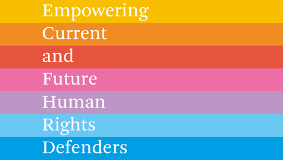 The Global Campus Annual Report 2021 celebrates human rights defenders across our network.
The Global Campus Annual Report 2021 celebrates human rights defenders across our network.
https://gchumanrights.org/news-events/latest-news/news-detail-page/the-global-campus-annual-report-2021-celebrates-human-rights-defenders-across-our-network.html
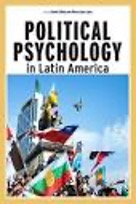 Political psychology in Latin America. Claudia Zúñiga & Wilson López-López (Eds.), APA, April 2021.
Political psychology in Latin America. Claudia Zúñiga & Wilson López-López (Eds.), APA, April 2021.
This book explores Latin America through a political psychology lens. It presents a broad spectrum of theoretical and methodological perspectives illustrating how political psychology has addressed critical social issues in Latin America and provides a selective summary of the work carried out by some of the leading Latin American researchers in political psychology.
This volume will allow readers to identify the most relevant topics of this discipline in Latin America, including the specific structural conditions of inequality and intergroup conflict in the region, as well as the most relevant contributions from Latin America to the global field of political psychology, including strategies of resistance and resilience and reflections on the potential transforming power of citizens to effect change through political participation and collective action. https://www.apa.org/pubs/books/political-psychology-latin-america
 Human Rights Violations in Latin America. Reparation and Rehabilitation.
Human Rights Violations in Latin America. Reparation and Rehabilitation.
Editors: Elizabeth Lira, Marcela Cornejo, Germán Morales (Eds.)
Shows the relationship between mental health and human rights; Shows ethical and professional dimensions; A broadened knowledge of working with victims.
Part of the book series: Peace Psychology Book Series (PPBS)
The Passing of the Great Race; or The Racial Basis of European History (1916), by Madison Grant, Aliya R. Hoff, Arizona State University, July 2021.
https://embryo.asu.edu/pages/passing-great-race-or-racial-basis-european-history-1916-madison-grant
In 1916, eugenicist Madison Grant published the book The Passing of the Great Race; or The Racial Basis of European History, hereafter The Passing of the Great Race, where he claimed that northern Europeans, or Nordics, are biologically and culturally superior to the rest of humanity. Charles Scribner’s Sons in New York City, New York, published the volume. Grant claimed that the Nordic race was at risk of extinction and advocated for the creation of laws in the US to decrease the population of people he considered inferior. According to Grant’s biographer Jonathan Spiro, Grant’s book synthesized a range of racist and pseudoscientific eugenics claims in prose that was accessible to the public. In the US, The Passing of the Great Race was praised by politicians, including former presidents Theodore Roosevelt and Calvin Coolidge, and cited as justification for laws that restricted immigration based on ethnicity and nationality. Adolf Hitler referred to The Passing of the Great Race as his Bible, and during the Nuremberg Trials in the 1940s, Nazi leaders who were prosecuted for war crimes committed during World War II presented the book as evidence that eugenics did not solely originate in Germany but rather had deep roots in the United States.
Upcoming Events
INTERNATIONAL CONFERENCE Diversity – Equity – Inclusion
Problems, needs, barriers, and perspectives for inclusion of students with impairments.
Kraków, 27th-28th September, 2022, organized as part of the project Academy of Equal Chances and held with the endorsement of Andrzej Frycz Modrzewski Krakow University.
As conference organizers we find a complex and multidimensional nature of issues related to full participation of young people with disabilities in university education a good basis for fruitful discussions. The conference will be opportunity for specialists representing various academic disciplines and business sectors to discuss their experiences, ideas, and thoughts with other members of the international community. Particularly, we address our invitation to scholars – sociologists, psychologists, special education teachers, healthcare professionals, lawyers, architects, and all those who act for social inclusion of people with disabilities and their equality in access to higher education and the experience of studying.
The conference is organised as part of the ‘Academy of Equal Chances’ project, co-financed by the European Union under the European Social Fund, Operational Programme Knowledge Education Development 2014-2020, Priority Axis III. Higher education for economy and development, Measure 3.5 Comprehensive programmes of higher education institution.
9th World Congress on Women’s Mental Health.
International Association for Women’s Mental Health https://www.iawmh2022.org/
6 – 9 November 2022 | MECC Maastricht – The Netherlands
17th Symposium on the Contributions of Psychology to Peace
Peace Psychology and Global Challenges in 2022, 17-19 November 2022, Online
The theme of the International Network of Peace Psychology’s 17th biennial symposium is “Peace Psychology and Global Challenges in 2022.” The event will be held online over three days from 17-19 November (18-20 November for those in Australia/New Zealand). The symposium aims to bring together scholars, practitioners, and activists committed to promoting peace and social justice through their research and practice to discuss the pressing issues facing our world today. Invited speakers include Prof. Winnifred Louis, Prof. Wilson López, and Prof. Emeritus Dan Christie.
Call for Abstracts
The symposium organisers are currently seeking abstract submissions to the following streams:
- Young people and peace
- Culture, religion and peace-building
- Social movements and political and social transformation
- War, conflict and peace-building
To submit your abstract, please complete this form. Abstract submissions close on 31 August 2022.
Submissions from presenters living in countries affected by armed conflict are encouraged. Accepted presentations may contribute to a special issue of Peace and Conflict: Journal of Peace Psychology.
ICP2022 – December 9-11.2022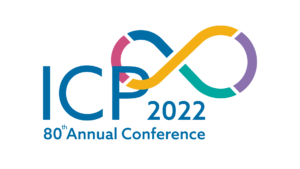
Dear Colleagues,
We invite you to submit proposals for short talks or posters for the International Council of Psychologists 2022 Annual Conference (December 9-11). Proposals are due by July 1st. You can find more information here: https://icpweb.org/icp-annual-conference/icp2022/
Come join together to explore Human Rights, Dignity & Justice: Strategies for Sustainability with talks, discussion and networking.
CONTACTS: Published by the Global Network of Psychologists for Human Rights – www.humanrightspsychology.org
Disclaimer: The website of the Global Network of Psychologists for Human Rights (GNPHR) contains articles, events and news about the domain where psychology and human rights intersect. The information presented in this Bulletin, does not imply that the GNPHR shares the views and beliefs in the articles.
- @GNPHR1
- How to get involved – read how you can contribute to the global network
- Consider contributing a Blog/Commentary
- News and Bulletins from the GNPHR – Subscribe to GNPHR
- Email addresses:
Ways to Participate in Global Network Activities
- Student/young person representation on the GNPHR Steering Committee
Are you a student or young person (under 35 years of age) interested in joining the GNPHR Steering Committee? The GNPHR invites applications. Role description: The terms of reference broadly define the roles of all members of the steering group. Individual steering committee member tasks include : Each member will take responsibility for one of the following: (a) A specific content area or group of areas; (b) A specific project (e.g. survey of human rights reporting mechanisms; survey of educational programs in psychology/human rights, etc); (c) A specific function: for example, organizing a newsletter; soliciting commentary or newsletter blogs; seeking grant possibilities; outreach to general human rights organizations; outreach to psychology organizations or (d) Consultation: Working in collaboration with other organisations where there is a specific issue. In addition, from time-to-time, short-term subgroups may work on specific projects. In addition, for the student member, there would be a specific remit to liaise with other organisations that are focussed on younger people, psychology and human rights. Click here if you are interested in being nominated. - Share Your Experiences and Examples
One of the best ways to illustrate the intersection of psychology and human rights is through example. We are looking for examples of your encounters with human rights issues in your professional life. You might describe a time when you protected (or failed to protect) human rights, or advocated for what you saw as a human rights issue. The events might be in your clinical, research, academic, applied, or volunteer work. Please send your narrative / story (500-1000 words) to Marlena Plavšić (marlena_plavsic@hotmail.com). We will compile these for publication in the GNPHR Bulletin and on the website. Please also indicate if you would like your stories to remain anonymous. - Share your Expertise and Opinions
We invite you to contribute a blog or opinion piece on general human rights issues; human rights education or strategies for raising the profile of human rights within psychology or your professional life. Students are welcome to contribute, including on student needs for learning about and addressing human rights. Please contact the GNPHR Blog editor (blogeditor@humanrightspsychology.org) with ideas for the article you would like to write! - Send articles/news/events
If you come across a human rights article or news, or know of an upcoming hunman rights event, please send for publication in the Bulletin. Send to the Bulletin editor Polli Hagenaars (polli.hagenaars@gmail.com).

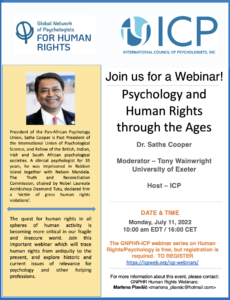
 Leticia Biira Birungi
Leticia Biira Birungi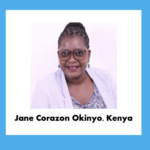 Jane Corazon Okinyo
Jane Corazon Okinyo